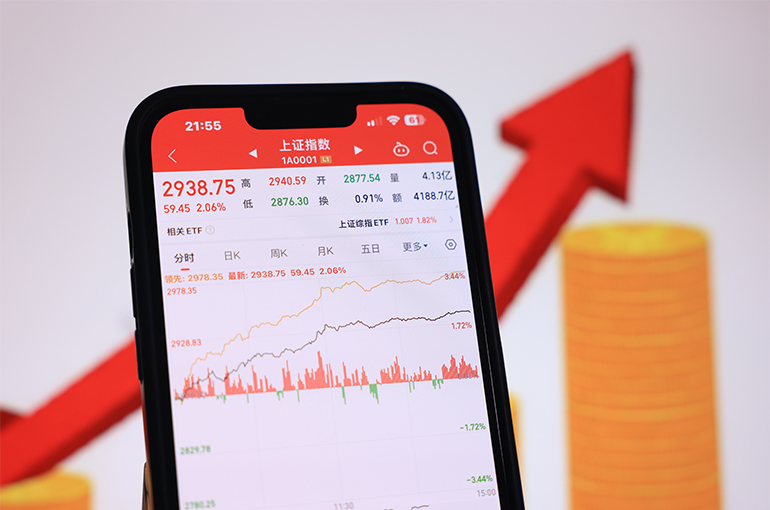 Chinese Mainland’s Stock Indexes Soar on Last Trading Day of July
Chinese Mainland’s Stock Indexes Soar on Last Trading Day of July(Yicai) Aug. 1 -- The major stock indexes in the Chinese mainland surged on the last trading day of July, as their single-day gains hit the highest in the past two months.
The Shanghai Stock Exchange Composite Index [SHA: 000001] closed up 2.1 percent, and the Shenzhen Stock Exchange Component Index [SHE: 399001] jumped 3.4 percent yesterday. The Star 50 Index [SHA: 000688] and the ChiNext Index [SHE: 399006], the indexes following the top stocks on the two bourses’ science and technology boards, soared 4.7 percent and 3.5 percent, respectively.
The first two indexes fell 1 percent and 1.1 percent, respectively, in July. Meanwhile, the third and fourth rose 4.4 percent and 0.3 percent.
“The markets rebounded yesterday thanks to favorable policies and restored market confidence,” Wang Lu, senior analyst at Shenwan Hongyuan Securities, told Yicai. “Policy stimulus actively boosted consumption, and the recovery of the securities sector helped restore the market sentiment.”
The 10-year treasury bond yield fell below 2.2 percent on July 30, while the dividend yield of the CSI 300 Index, which tracks the performance of 300 top stocks traded on the SSE and SZSE, reached 3.1 percent, meaning that the Chinese mainland stock market is already very attractive, according to a research report from China International Capital Corporation.
“With the increase in risk appetite, the market may usher in a rebalancing, and the value of growing stocks may further increase in the future,” an insider from China Asset Management said.
China will introduce more favorable policies this year to further ease the real estate market and speed up the issuance and use of special bonds, said Xiong Yuan, chief economist at Guosheng Securities.
Stronger policy stimulus may need to wait more time, as attention should be first paid to alternative outcomes and external environment changes, such as US interest rate cuts and presidential elections, Xiong noted.
More policies will be released in the short term, but they will be relatively weak, said Ni Jun, chief banking analyst at GF Securities. There is still room in the fiscal budget this year, so fiscal policies will likely be stronger later this year, he added.
China’s monetary policy will be decided by the direction the country will follow to meet its goals of stable growth, stable exchange rate, stable interest rate, and risk prevention, Ni predicted.
The Star Market may also have opportunities for long-term development because policies have raised sci-tech innovation to a new height, most tech industries are entering an upward cycle, the US Federal Reserve may enter an easing cycle, and China will likely ease its monetary policy, the insider from China Asset Management said.
Editor: Futura Costaglione